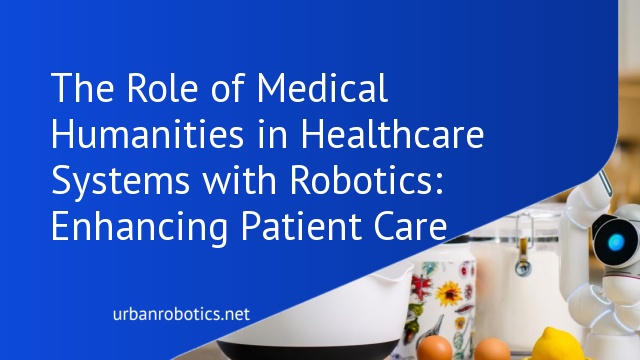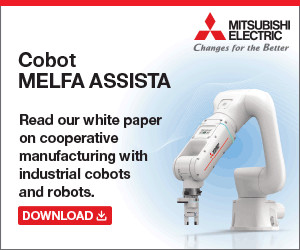Understanding Medical Humanities
Medical humanities encompass various disciplines, including literature, philosophy, ethics, history, and the arts, focusing on the human side of healthcare. By studying these fields, healthcare professionals gain insight into the patient’s lived experience and the moral dimensions of medical practice.
Incorporating medical humanities into healthcare systems helps us understand the broader context of patient care. It allows caregivers to see patients as whole individuals rather than just cases or symptoms. Medical humanities also promote empathy and ethical awareness, enhancing the patient-provider relationship.
By integrating these concepts into medical curricula, we ensure that future healthcare providers are well-rounded. They can navigate the complexities of technological advancements like robotics while maintaining a human-centered approach. This balance of compassion and technological proficiency is crucial for optimizing patient care in modern healthcare systems.
The Role of Medical Humanities in Healthcare
Medical humanities encompass fields like literature, philosophy, ethics, history, and the arts. They emphasize human aspects in healthcare, crucial for a patient-centered approach.
Enhancing Patient Care
Medical humanities enhance patient care by fostering empathy and understanding. They help caregivers view patients as individuals with unique experiences, not just as medical cases. Incorporating literature and arts into healthcare encourages providers to empathize with patients’ emotions and social contexts. This holistic view leads to improved patient experiences and satisfaction. For example, studying narratives in patient histories can offer deeper insights into their conditions, enriching the care process and making it more personalized.
Supporting Healthcare Professionals
Medical humanities support healthcare professionals by nurturing ethical awareness and reflective practice. Exposure to philosophy and ethics sharpens their ability to make informed, compassionate decisions. Engaging with history and arts reduces burnout by providing creative outlets and perspectives. This balance between technology and human connection helps professionals maintain their well-being and job satisfaction. For instance, ethical scenarios in medical training can prepare practitioners to handle complex moral dilemmas, improving their resilience and decision-making skills.
Integration of Robotics in Healthcare Systems
Robotics have transformed healthcare, offering innovative solutions that enhance patient care and operational efficiency. Here, we’ll explore current applications and advancements in robotic technology within healthcare systems.
Current Applications of Robotics
Robots perform various tasks, from surgical assistance to rehabilitation. Surgical robots, like the da Vinci system, enable precise minimally invasive procedures, reducing recovery times. In rehabilitation, robotic exoskeletons assist patients with mobility impairments, improving their quality of life. Additionally, robots disinfect hospital environments and deliver medications, enhancing patient safety and operational efficiency.
Advancements in Robotic Technology
Rapid advancements in robotics are reshaping healthcare. AI-integrated robots analyze vast medical data to support diagnostics and personalized treatment plans. Telepresence robots facilitate remote consultations, expanding access to medical expertise. Soft robotics, with improved flexibility, are now used in delicate procedures. These technological improvements optimize both patient outcomes and healthcare delivery efficiency.
Intersection of Medical Humanities and Robotics
Exploring the intersection of medical humanities and robotics reveals insights into how technology and humanistic disciplines can synergize to improve healthcare delivery.
Ethical Considerations
Rapid advancements in robotics necessitate thorough ethical considerations in their application. Ensuring patient autonomy and privacy stands paramount. Adhering to ethical guidelines, caregivers must balance technological efficiency with empathetic patient care. One example includes programming robots to prioritize patient consent and data security, respecting individuality and dignity. Integrating medical humanities enables us to navigate these challenges, fostering moral responsibility and reflective practice among healthcare professionals.
Human-Robot Interaction
Human-robot interaction significantly influences patient outcomes. Effective interaction requires understanding the emotional and psychological needs of patients. Medical humanities contribute by teaching caregivers to interpret and respond to patients’ non-verbal cues. For instance, telepresence robots can alleviate patient isolation if designed with empathy in mind. This intersection bolsters trust and comfort, enhancing the therapeutic alliance between patients and technology, ultimately leading to better patient satisfaction and care quality.
Case Studies
Examining case studies demonstrates how integrating medical humanities and robotics can enhance healthcare delivery through real-world applications.
Successful Implementations
Several healthcare systems have successfully combined robotics and medical humanities. For example, the University of Texas Medical Branch implemented robotic-assisted surgery, enhancing precision while ensuring physicians maintain empathy through humanities training. Another instance is the use of social robots like Paro in elder care facilities in Japan. These robotic seals offer companionship to elderly patients, informed by principles from medical humanities to address emotional well-being and mitigate loneliness effectively.
Challenges Faced
Despite successes, integrating medical humanities with robotics presents several challenges. It’s difficult to ensure robots consistently interpret and respond to patients’ non-verbal cues accurately due to variability in human expressions. Additionally, balancing the efficiency-driven nature of robotics with the empathy-driven aspects of medical humanities can be complex. For instance, maintaining patient autonomy and privacy while utilizing AI-driven diagnostic systems requires constant ethical considerations and adjustments.
Future Prospects
The future of medical humanities in healthcare systems with robotics promises exciting advancements. This integration aims to strengthen patient care by leveraging technology and human empathy.
Innovations on the Horizon
The horizon features innovations like AI-powered diagnostic tools that assess patient emotions through facial recognition and vocal tone analysis. Another development includes robotic companions that provide emotional support and improve patient mental well-being. Projects are underway to create more intuitive robotic surgical assistants capable of understanding and responding to non-verbal cues.
Potential Impacts on Healthcare Systems
These innovations could transform healthcare systems by enhancing patient engagement and reducing caregiver workload. Patient-centered approaches, supported by robotics, might result in faster recovery times and better patient outcomes. Efficiency in diagnostics and treatments could improve significantly, reducing the burden on healthcare providers. However, integration will require continuous ethical oversight to ensure that robots enhance, rather than diminish, human elements in care.
Conclusion
Integrating medical humanities with robotics in healthcare holds immense promise for the future of patient care. By combining advanced technology with human empathy, we can create a more compassionate and efficient healthcare system. Innovations like AI-powered diagnostic tools and robotic companions offer exciting possibilities, but we must ensure these advancements don’t overshadow the essential human elements of care.
Balancing technological efficiency with empathy remains a critical challenge. As we move forward, ethical considerations will be key to maintaining the human touch in healthcare. By continuing to explore and address these challenges, we can build a healthcare system that truly benefits both patients and caregivers.





